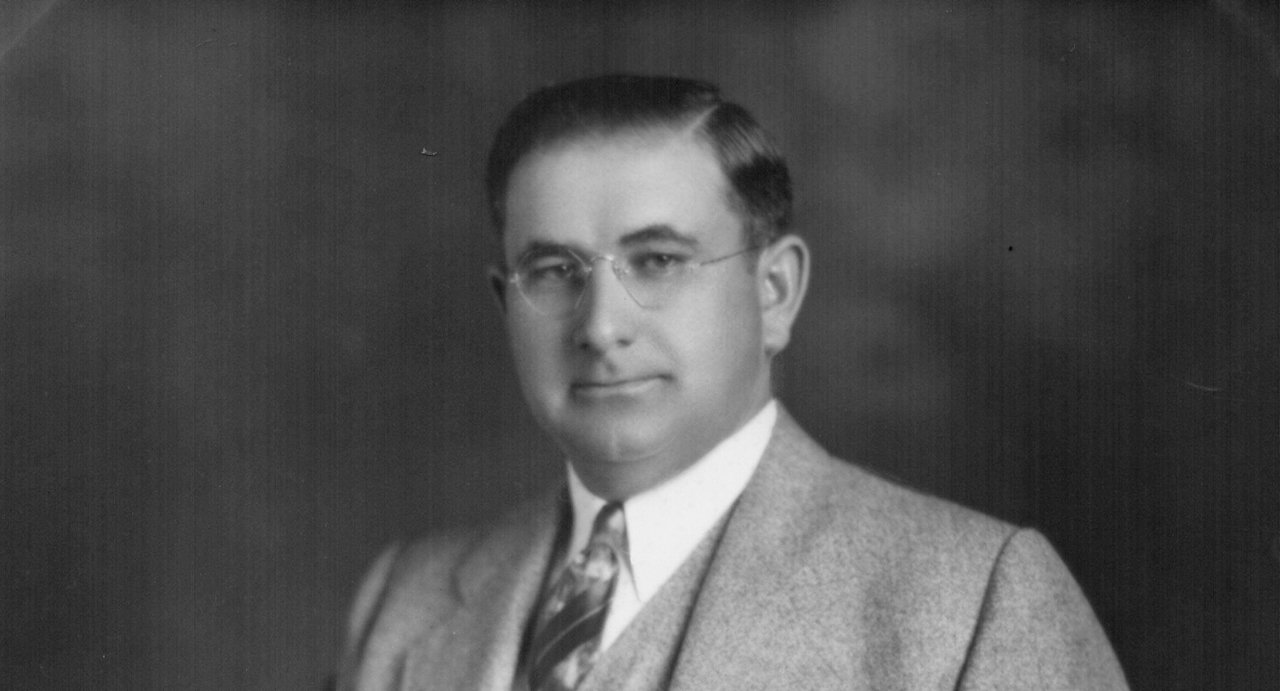
SAM COHODAS 1895-1988
How a Sixth-Grade Dropout Built an Empire
and Changed the Upper Peninsula Forever
Sam Cohodas might not have had much formal education—he dropped out of school in sixth grade—but his vision, determination, and entrepreneurial spirit led him to become one of the most influential figures in Michigan’s Upper Peninsula. Born in 1895 in Kobylnik, Poland, Sam and his family immigrated to the U.S. when he was just seven years old. They first settled in Wisconsin, and later moved to Michigan. After his father died when Sam was only nine, he had to leave school to help support his family. That early work ethic would serve him well for the rest of his life.
At 20, Sam co-founded Cohodas Brothers, a fresh produce company that quickly grew into one of the largest distributors in the U.S. By the time it was sold in 1983, it was the third-largest produce distributor in the country. Sam didn’t just stay in the produce business—he expanded into orchards, packing, and canning, and changed the industry for good. But his interests weren’t confined to fresh fruits and vegetables. In 1934, Sam made a bold move into banking, purchasing Miners' First National Bank in Ishpeming. This marked the start of his financial ventures, which would later evolve into Michigan Financial Corporation, a network of banks with assets reaching $600 million by the time of Sam’s passing in 1988—equivalent to $1.41 billion today.
Sam’s success didn’t stop with business. Known fondly as “Mr. Sam,” he was deeply committed to giving back to his community. He supported causes close to his heart, like education, healthcare, and Jewish organizations. “Money means to me what you can do with it,” he said in an interview in 1988. “I’ve never been hungry for money.” He was a major benefactor for Northern Michigan University, funding scholarships and even a chair in Banking and Finance. His generosity extended to the Hebrew University of Jerusalem and Bell Memorial Hospital in Ishpeming, as well as a number of Jewish community groups.
Sam’s charitable contributions were massive, amounting to nearly $250,000 a year in his later years. His love for his community was so strong that he once joked, “I think I’ve got a few bricks in every church built in the Upper Peninsula.” His giving wasn’t just about writing checks—it was about making a lasting impact on the region he loved.
In 1935, Sam's entrepreneurial vision expanded to building Cohodas Lodge, a wilderness retreat perched high above Lake Michigamme. Designed by architect David E. Anderson and constructed by Finnish craftsmen, the lodge became a personal sanctuary for Sam and a place where he entertained business leaders and friends. Its design was a reflection of his deep appreciation for natural beauty and craftsmanship. Today, the lodge stands as a lasting tribute to his legacy. In 1991, it was added to the National Register of Historic Places, underscoring its importance to both Sam’s personal story and the history of Michigan’s Upper Peninsula.
Despite a limited formal education, Sam’s resilience, hard work, and vision helped reshape both the produce and banking industries. His philanthropy transformed the region's educational and healthcare systems and played a key role in the growth of local communities.
Sam passed away in 1988 at 92, still fully engaged in his businesses. Just days before his death, he was planning ahead, telling his assistant to clear her desk because he was coming back to dictate more notes. “He was always working,” said Ellwood Mattson, chairman of the First National Bank of Marquette. Sam’s ability to stay active and involved until the very end was a testament to his tireless work ethic.
Today, the Cohodas Lodge is a cherished landmark, preserving the story of a man whose life was defined by his hard work, vision, and deep love for the community that shaped him.

